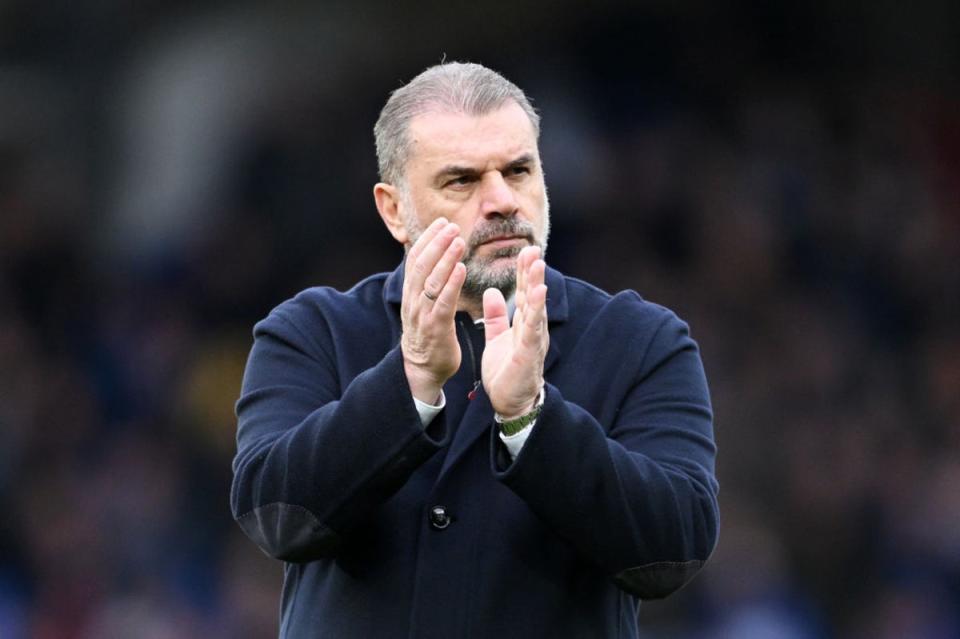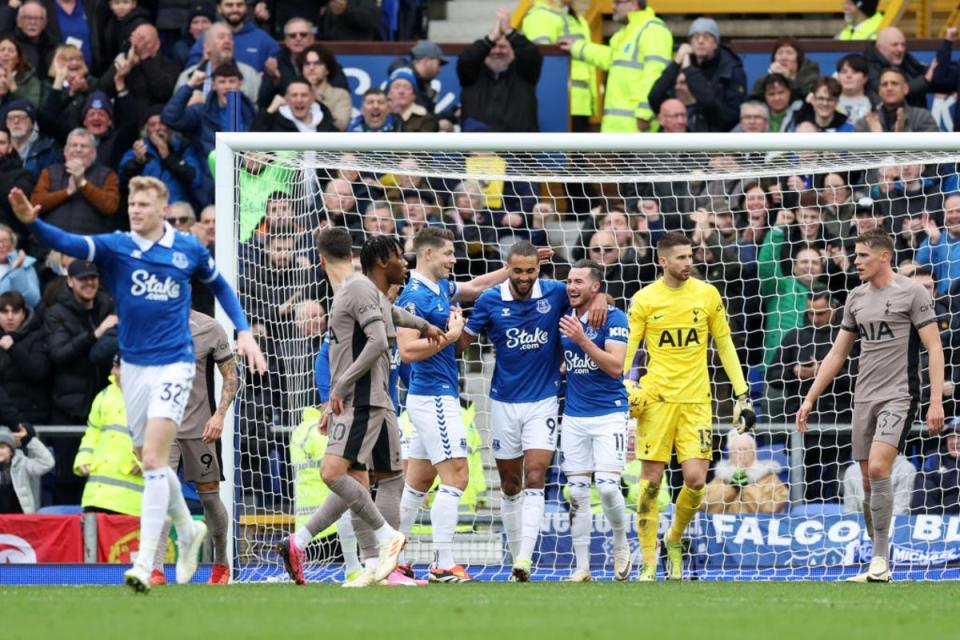Tottenham might be great entertainers but Angeball has a design flaw
Tottenham were on their way back to London when they relinquished their title as the Premier League’s great entertainers; statistically, anyway. As Newcastle’s 4-4 draw against Luton took Eddie Howe’s team to 85 league goals this season – 48 for, 37 against – Spurs were demoted to second place. Scored 49, conceded 35, the numbers could feel an example of Angeball in action, bringing back the Tottenham way, restoring the kind of excitement their fans craved.
Actually, their games had the most goals last season, but too much of the entertainment came at their expense as they posted a negative goal difference from the start of November to the end of the campaign. Ange Postecoglou was brought in to provide a break from the recent past; that only three of the 13 players who featured for Spurs at Goodison Park in April started Saturday’s rematch shows the scale of the change in personnel.

Much of that has been at the back. A curiosity in Tottenham’s record, however, is that while each of their first-choice back five represents a success – most arguably exceeding expectations – their defensive record is undistinguished; had individuals not excelled, logically it would be worse. As it is, Spurs are on course to concede 58 goals, their second most in the last 16 seasons, if an improvement on sieving 63 last year. Those numbers could be still higher: they have the fourth worst expected goals against.
Which is one reflection of how well goalkeeper Guglielmo Vicario has done: another is that the World Cup winner Hugo Lloris has not been missed. Yet goals conceded from corners to Manchester City and Everton show the Italian’s problems when crowded and his reluctance to leave his line and command his box: Postecoglou can argue referees should not wait for VAR to penalise the goalkeeper’s nemeses but he is likely to face further hassle at set-pieces.
Meanwhile, Micky van de Ven’s remarkable recovery pace rendered him outstanding at Goodison Park and one of the signings of the season. Cristian Romero has had a couple of games of idiotic rashness but has otherwise showed more reliability to accompany his considerable ability. Destiny Udogie has been the third revelation while Pedro Porro can be found high on the division’s assists list. That each can play the Postecoglou full-back role – less inverted than inside-forward – means they are auxiliary attackers: if there is a chance to catch Tottenham on the break when each has advanced, perhaps that is a risk Postecoglou is willing to take.

The same maybe said of the goals against column. Yet conceding 26 goals from their last 13 games is both poor and porous. There are a couple of caveats: three came from Chelsea against Tottenham’s nine men on an evening of chaos, others when Postecoglou’s back four comprised a quartet of full-backs. With Radu Dragusin signed, a repeat of that idiosyncratic selection is unlikely. Spurs may hope the opening 10 matches, when the axis of Van de Ven and Romero was intact, when they were only breached nine times, is a sign of their capabilities.
Yet there are other damning details. Tottenham have conceded eight 90th-minute or injury-time goals already this season: it could have been more with Everton – in December – and Brentford almost adding others. That they have also scored a host of late goals suggests it is not as simple as attributing them to fitness alone.
The issue is not just the number or the manner but the damage inflicted, with 18 points lost from winning positions. It suggests Spurs can struggle to control games and shut them down. At times, amid injuries and suspensions, Postecoglou has lacked strength in depth but he had a better bench than Sean Dyche on Saturday. Collectively, it raises questions about game management; perhaps about a manager whose attacking ethos has endeared him to many.
But there may be a design flaw with Angeball. Postecoglou flourished with Yokohama F Marinos in Japan but, in each season, the team’s finishing position was better than their place in the defensive charts. His Celtic conceded 30 goals in 12 group-stage games in Europe; as 15 of them were in the Europa League, that record may be still worse than it seems.
He was not hired to be a defensive strategist; arguably Jose Mourinho and Antonio Conte were and, albeit after getting worse when the Italian talked himself out of a job, Spurs still ended up conceding 63 times last season. Postecoglou feels a truer fit for Tottenham’s traditions. But a pragmatic look at Premier League history shows that teams who concede a half-century of goals rarely finish in the top four. There are occasional exceptions – Frank Lampard’s Chelsea in 2019-20, Brendan Rodgers’ Liverpool in 2013-14, Bobby Robson’s Newcastle in 2001-02 – but even they did not let in 58 goals. So for Postecoglou, the task may now be to make Tottenham a little duller, to leave some of the entertainment to others.

 Yahoo Sport
Yahoo Sport 



































































